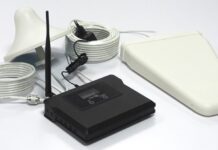Sweden-based telco plays up positive impact of mobile in countries like Uzbekistan.
At a meeting on Tuesday, the board of TeliaSonera AB reaffirmed its “full confidence” in the company’s Chief Executive Lars Nyberg as well as his management team, amid increased scrutiny about the Swedish telecom operator’s operations in some Central Asian markets.
The board meeting follows allegations against TeliaSonera of money laundering and corruption in connection with the carrier’s purchase of a wireless data license in Uzbekistan. There has also been criticism in Swedish media regarding the company’s presence in other markets such as Belarus, Tajikistan and Kazakhstan.
TeliaSonera is a former telecom monopoly in which the Swedish government holds a 37.3% stake.
Although admitting that “telecommunications and human rights bring conflicts of interest and difficult decisions,” TeliaSonera said it has “reconfirmed its commitment” to the company’s strategy, and added it will strive to strengthen its operations in Central Asia.
The board said it has concluded that “the positive aspects of mobile communications by far outweigh the negative aspects” and that TeliaSonera’s presence in countries such as Uzbekistan, Tajikistan and Kazakhstan contributes to the long-term development of democracy and human rights.
TeliaSonera has expanded rapidly in Central Asia over the past decade, with operations in a number of countries in the region. Its sales in the region increased 19% in the second quarter of this year from a year earlier, and accounted for almost a fifth of the company’s total revenue.
The anti-corruption unit of the Swedish prosecutor’s office has launched a probe into a deal by TeliaSonera in Uzbekistan, where TeliaSonera owns 94% of the country’s second-largest telecom operator, Ucell.




















